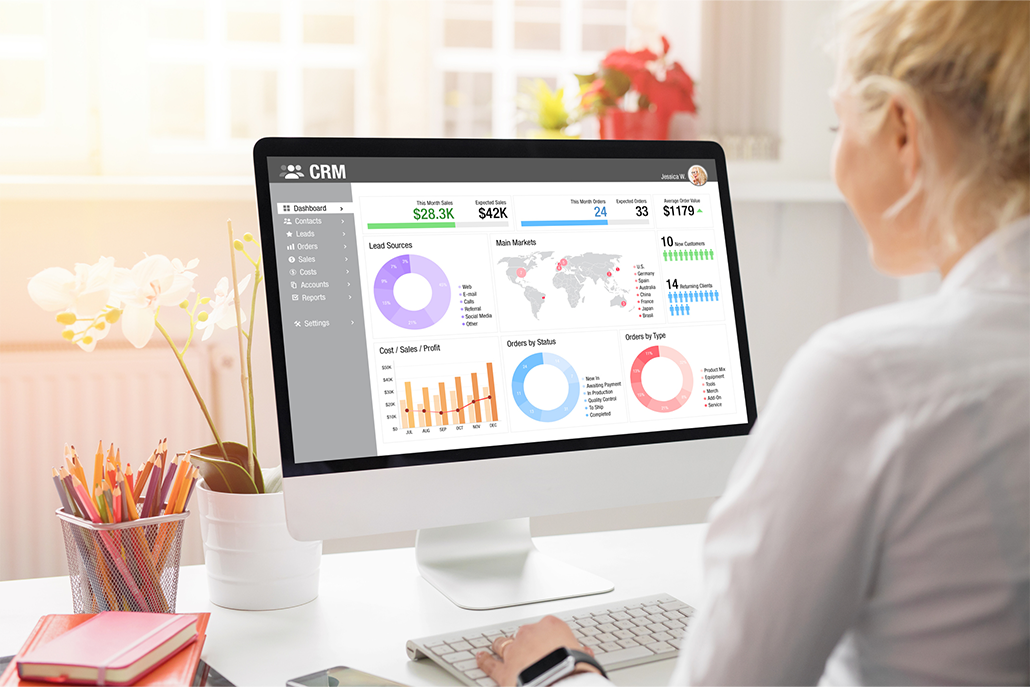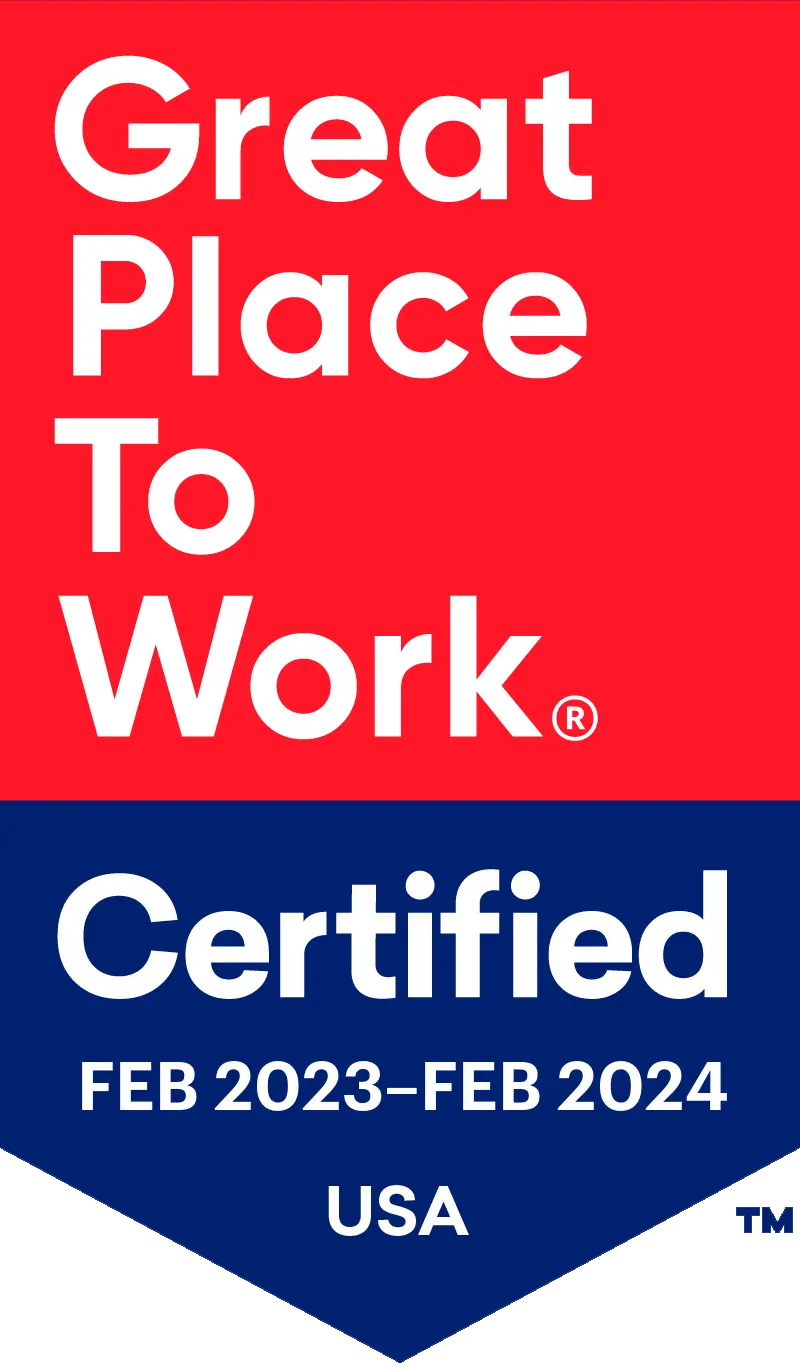Introduction
As a small or mid-size business, there are various factors to consider. While selling cutting-edge products, providing a varied range of services, and having a solid marketing plan is crucial, you must build and sustain long-term customer relationships. This is precisely where CRM comes into the picture.
Customer Relationship Management (CRM) is a must-have software solution allowing businesses to build, maintain and scale meaningful customer relationships. While small companies have a limited customer base, a robust CRM system gives them the necessary advantage by allowing them to tailor communication channels for each user.
According to studies, 65 percent of businesses implement a CRM system within the first five years of operation. According to Forbes Insights, 53 percent of top-performing organizations continue to invest in CRM systems to generate sales.
What is small business CRM software?
A small business CRM software is a customer relationship management tool designed specifically for small businesses. It helps small business owners manage customer interactions and data more efficiently, improving customer satisfaction, increasing sales, and creating a better overall customer experience.
CRM software typically provides a centralized database where a business can store customer information, including contact details, purchase history, customer preferences, and more. This information can be used to segment customers, create targeted marketing campaigns, and track sales and customer interactions.
One of the most significant benefits of small business CRM software is that it can help small businesses save time and improve efficiency. By automating specific tasks and providing a centralized database for customer information, a CRM system can reduce the time business owners and employees need to spend on administrative tasks, such as data entry and customer management.
Another benefit of small business CRM software is that it can improve customer satisfaction by providing a more personalized and responsive customer experience. By storing detailed customer information and tracking interactions, businesses can provide tailored recommendations and support and respond more quickly to customer inquiries and issues.
With various features and benefits, it can help small businesses grow and succeed in a competitive market.
How does small business CRM work?
A small business CRM software provides a centralized database for storing customer information and tools for managing customer interactions and automating specific tasks. Here are the critical components of how a small business CRM works:
Customer database: The heart of a small business CRM is the customer database. It is where all customer information is stored, including contact details, purchase history, and other relevant information. This database can be accessed by all employees who need it, ensuring that everyone has the same up-to-date information.
- Interaction tracking: A small business CRM software allows businesses to track all customer interactions, including emails, phone calls, and social media messages. This tracking helps companies keep track of what customers are saying and what actions have been taken, providing valuable insights for future interactions.
- Task automation: With the help of CRM software, small businesses can automate specific tasks, such as sending follow-up emails or reminders to customers. This automation can save time and improve efficiency, allowing companies to focus on other essential tasks. It can also eliminate redundancies and inconsistencies from using multiple systems or processes. By automating routine tasks, the software ensures that everything runs smoothly and everyone works towards the same goals.
- Sales tracking: For any business, keeping track of sales is essential. CRM software can track sales and provide valuable insights into sales performance, with the help of which companies can identify trends and make data-driven decisions about sales strategies.
- Marketing tools: Many small business CRM systems include marketing tools such as email marketing and social media management. These tools help businesses create targeted campaigns and reach out to customers in a more personalized way.
- Reporting and analytics: CRM software often includes reporting and analytics tools, which can help businesses track their performance and identify areas for improvement.
The software provides insights and analytics on customer behavior and interactions. By tracking metrics such as customer engagement, purchase history, and customer feedback, SMBs can better understand their customer’s needs and preferences. This information can tailor marketing campaigns and sales strategies, improve customer service, and identify patterns to make data-driven decisions about their operations.
CRM software also helps to streamline customer management and improve customer relationships. It helps small businesses save time, improve efficiency, and provide a more personalized and responsive customer experience.

How can CRM software benefit SMBs?
CRM software can benefit small and medium-sized businesses (SMBs) in several ways. In this answer, we will elaborate on the points mentioned in the question to understand how CRM software can help SMBs grow and succeed.
Storing customer information: One of the primary benefits of CRM software for SMBs is the ability to store and manage customer information efficiently. A CRM system can record and update customer contact details like email addresses, phone numbers, and social media handles. It can also centralize customer data from various sources, including sales, marketing, and customer support.
With a single view of each customer, communication, and interaction, SMBs can provide a better customer experience. By knowing more about their customers, SMBs can tailor their products, services, and marketing campaigns to meet their needs and preferences. CRM software can also help SMBs stay organized and ensure no critical customer information falls through the cracks.
Managing leads, deals, and sales: Another significant benefit of CRM software for SMBs is managing leads, deals, and sales efficiently. A CRM system can capture potential customer interest in buying your products or services and manage the sales process from initial interest to closing the deal and follow-up.
By keeping the sales pipeline full, SMBs can increase their chances of closing deals and generating more revenue. CRM software can also provide valuable insights into the sales process, such as conversion rates, deal velocity, and revenue per customer. These insights can help SMBs identify areas for improvement and optimize their sales strategies.
Driving marketing and promotional campaigns: CRM software can help SMBs drive more effective marketing and promotional campaigns. A CRM system can allow audience segmentation and targeting by providing insight into the customer base. SMBs can use this information to create more personalized and relevant marketing messages, leading to higher conversion rates and customer satisfaction.
CRM software can also track the effectiveness of marketing campaigns in creating leads and building a marketing funnel. By understanding how customers move through the sales process, SMBs can tailor their campaigns to customer awareness and interest, leading to more sales.
Making and tracking customer interactions: CRM software can help SMBs manage customer interactions more effectively. By integrating email, phone, and other communication channels with customers, a CRM system can provide a more seamless and personalized customer experience. It can also implement social media, omnichannel, and different types of marketing, which can help SMBs reach customers where they are most active.
CRM software can also bring together interactions in other customer-facing systems, such as customer support software or chatbots. This integration can help SMBs provide a more consistent and cohesive customer experience, leading to increased customer loyalty.
Creating and storing quotes, proposals, and other documents: CRM software can help SMBs manage the quoting and proposal management processes to win new business. By creating a central storage area for all your sales- and customer-related documentation, SMBs can stay organized and ensure they have all the information they need to close deals.
CRM software can also provide valuable insights into the quoting and proposal process, such as win rates and deal size. These insights can help SMBs identify areas for improvement and optimize their sales strategies.
Integrating and automating business systems and processes: CRM software can integrate with other business systems to provide a central point of management, awareness, and control. A CRM system can ensure that nothing falls through the gaps by automating everyday tasks within the customer lifecycle, such as sending follow-up emails or reminders to customers.
CRM software can also drive best-practice workflows and business processes for best-in-class customer management. The software can provide guidelines and workflows for various stages of customer interaction, ensuring that every customer receives a consistent and high-quality experience. By standardizing processes across the organization, SMBs help to improve efficiency, increase productivity, and reduce errors in customer management to deliver better customer service and build long-lasting customer relationships.
Furthermore, the software can help SMBs to build stronger relationships with their customers by providing a platform for personalized communication. By leveraging customer data, SMBs can create targeted marketing campaigns, offer recommendations, and send personalized follow-up messages. It helps develop a sense of loyalty and connection with customers, increasing sales and customer retention.
CRM software can benefit SMBs by streamlining customer management processes, improving customer service and satisfaction, and providing insights for business growth and expansion. By implementing best-practice workflows and automating routine tasks, SMBs can save time, reduce errors, and focus on building solid relationships with their customers. Additionally, by leveraging customer data and insights, SMBs can tailor marketing campaigns and sales strategies to meet their customer’s needs and preferences better, leading to increased sales and customer loyalty.
Customizing a CRM for your Small Business
Customizing a CRM system to fit the specific needs of a small business is essential for maximizing its effectiveness. The CRM system is customizable to capture and manage the necessary information by understanding the business requirements. By tailoring the software to meet a company’s unique requirements, the system can better capture, collect, and analyze customer data, leading to improved customer management and increased sales. Here are some tips for customizing a CRM system for a small business:
Identify the business requirements: Before customizing the system, it is essential to identify the specific business requirements. It involves analyzing the company’s sales process, customer journey, and data management needs.
Customize fields and forms: Customizing the fields and forms within the CRM system allows businesses to capture specific data points and tailor the system to the unique requirements of their sales process. For example, suppose a small business offers a subscription-based service. In that case, it is suggestible to add a field to capture the subscription status of each customer.
Create custom reports: Custom reports can help businesses analyze and understand customer data better. Companies can gain insights into customer behavior, sales trends, and other vital metrics by creating reports tailored to the business’s specific needs.
Customize workflows: Customizing workflows can help businesses to streamline their sales process and ensure that every customer interaction is consistent and high-quality. For example, a small business may want to create a workflow that sends a follow-up email to a customer after purchasing.
Integrate with other systems: Integrating the CRM system with other business systems, such as marketing automation software or accounting software, can help businesses to manage their customer data better and streamline processes. For example, integrating the CRM system with an email marketing platform can allow companies to create targeted email campaigns based on customer behavior.
Train employees: It is essential to train employees on how to use the customized CRM system. Businesses can maximize the system’s effectiveness by ensuring that employees are familiar with the system and understand how to capture and manage customer data.
Customizing a CRM system for a small business is crucial for ensuring that it meets the company’s unique requirements. Small businesses can optimize their customer management processes and drive sales growth by tailoring the system to capture and manage specific data points, creating custom reports and workflows, integrating with other systems, and providing employee training.
How to pick the right CRM software for your small business?
Choosing the right CRM software is a critical decision for small businesses. The right software can help businesses to streamline their customer management processes, improve customer interactions, and increase sales. Here are some key factors to consider when choosing CRM software for your small business:
Business requirements: It is essential to understand the specific business requirements and the features and functionalities the CRM software must have to meet them. It can involve analyzing the sales process, customer journey, data management needs, and other specific requirements.
Ease of use: The CRM software should be easy to use and navigate for all employees, regardless of technical expertise. A user-friendly interface can help employees quickly capture and manage customer data and streamline workflows.
Customization: The CRM software should be customizable to fit the business’s unique needs, which includes custom fields, forms, workflows, and reports tailored to the business’s specific requirements.
Integration: CRM software should integrate with other business systems, such as marketing automation or accounting software, to ensure that all customer data is captured and managed in a centralized location. Integration with other systems can also streamline processes and reduce the risk of data duplication.
Scalability: CRM software should be scalable to accommodate the growth of the business. It can handle a growing customer base, increased data volume, and additional users without requiring significant modifications or upgrades.
Data security: CRM software should provide robust data security measures to protect customer data and prevent unauthorized access. It can include encryption, user authentication, and backup and recovery features.
Customer support: The CRM software provider should offer reliable customer support to assist with technical issues or questions. It includes phone, email, live chat support, and online resources such as user guides and knowledge bases.
Choosing the right CRM software for a small business requires careful consideration of the business requirements, ease of use, customization, integration, scalability, data security, and customer support. Small companies can optimize their customer management processes, improve customer interactions, and drive sales growth by selecting CRM software that meets these criteria.
Final words
CRM software is a powerful tool for small businesses to manage customer relationships and drive growth. By leveraging the capabilities of CRM software, small businesses can improve their efficiency, effectiveness, and competitiveness in the marketplace.
CRM software can benefit small businesses by streamlining customer management processes, improving customer interactions, and increasing sales. With the right CRM software, small businesses can gain a competitive edge by providing a better customer experience, optimizing workflows, and driving growth.


